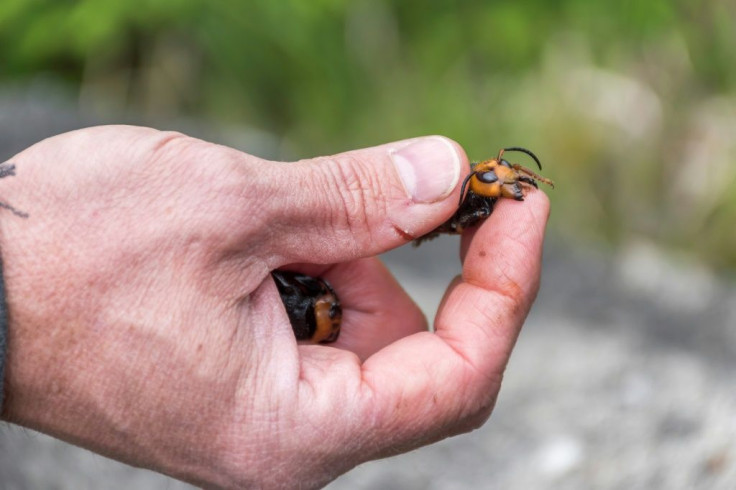‘Murder Hornet’ Fear: Insect Experts Call It Media Hype
KEY POINTS
- The nickname 'murder hornets' has caused people to worry about Asian Giant Hornets
- The first hornet sighting was in September 2019 and that colony was eradicated
- Experts said there is no evidence more Giant Hornets are living in Canada or the U.S.
News about so-called "murder hornets" have been circulating recently in the United States, adding panic to an already worried public. However, according to bug experts, the worry about hornets is "media hype."
This week, news about Asian giant hornets being found in Washington state made the rounds in the news, with headlines talking about murder hornets. This naturally grabbed the attention of many, especially with reports of the hornets being able to decapitate entire honeybee hives and reportedly killing 50 people in Japan each year.
Now, bug experts are dismissing the worries about the giant hornets as "hype."
"This is 99% media hype and frankly I'm getting tired of it," University of Delaware entomologist Doug Tallamy said, according to the Associated Press. "Murder hornet? Please."
Washington Agriculture Department entomologist Chris Looney shared the same sentiment about the frightening nickname.
"They are not 'murder hornets.' They are just hornets," Looney said. "The number of people who are stung and have to seek medical attention is incredibly small."
"It's ridiculous to call them murder hornets. It's no more likely to sting and kill a human than a honey bee. Actually it's less likely, as honey bee venom packs quite a punch and it is exclusively designed to defend against vertebrates," wasp expert, researcher professor of entomology and, director of the Bohart Museum of Entomology, Lynn Kimsey, said in a blog from the University of California Agriculture and Natural Resources. "There is no evidence that there are any more hornets in the vicinity of Vancouver or anywhere else on the West Coast."
The experts noted there are no Asian giant hornets known to be living in the U.S. or Canada. In fact, the first sighting of the hornets was in September of 2019 when beekeepers in Canada found a colony in Nanaimo on Vancouver Island. That nest has since been eradicated by authorities.
"There have not been any sightings in 2020 that would suggest the eradication attempt was unsuccessful," University of California Riverside Entomology Research Museum Senior Scientist, Doug Yanega, said in a news release from UC Riverside. As one of the country's leading insect identification experts, Yanega was the person the Canadian beekepers consulted upon discovering the initial colony.
In the U.S., two Asian giant hornets were discovered in Blaine, Washington, just about 50 miles from Nanaimo in December of 2019. One of the hornets was dead while the other flew away into the forest. According to Yanega, the hornet or the nest was never found, but it is unlikely for it to still be alive.

University of Illinois entomologist May Berenbaum even noted instead of being afraid of Asian giant hornets, people should worry more about mosquitoes.
"If anyone’s a murder insect, it would be a mosquito," Berenbaum said. In fact, millions of people die every year due to mosquito-borne diseases such as dengue fever and malaria.
The main threat from Asian giant hornets are mostly for honeybee hives since even a few hornets can kill a hive in a matter of hours, according to the Washington State Department of Agriculture. The honeybee populations were already dwindling, and having another threat to them could further deplete the numbers.
Asian giant hornets can also attack people or pets when threatened, but as Looney said, this number is "incredibly small." Yanega also noted people in Japan, Korea and China have co-existed with the hornets "for thousands of years."
That said, to ensure the hornets do not get established, authorities are simply asking the public to keep their eyes open for possible sightings.
"The fact that the second hornet turned out to be genetically different somewhat raises the odds that there could be more of them," Yanega said. "However, right now all authorities are doing is asking people to keep their eyes peeled in case there were queens that escaped destruction and established their own nests nearby."
Anyone who sees possible Asian giant hornets or their colonies must immediately report to their state's department of agriculture and not attempt to eradicate it themselves as the hornets have stronger toxin and longer stingers than local honey bees.
© Copyright IBTimes 2024. All rights reserved.






















